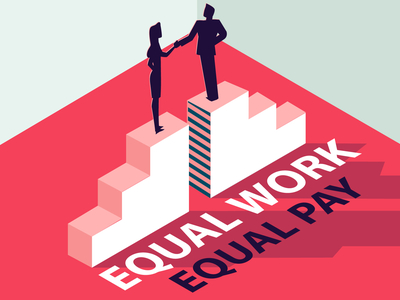Germany is not exactly known to be a pioneer when it comes to equal pay. In Germany, the pay gap remains particularly large and is only closing slowly, according to the Federal Statistical Office. The Federal Labor Court now took a step ahead to strengthen women’s rights in its latest ruling which will enable women to enforce their rights and simplify proceedings in equal-pay cases by putting the burden of proof on employers. READ MORE
Germany’s Federal Labor Court Boosts Enforcement of Equal Pay




